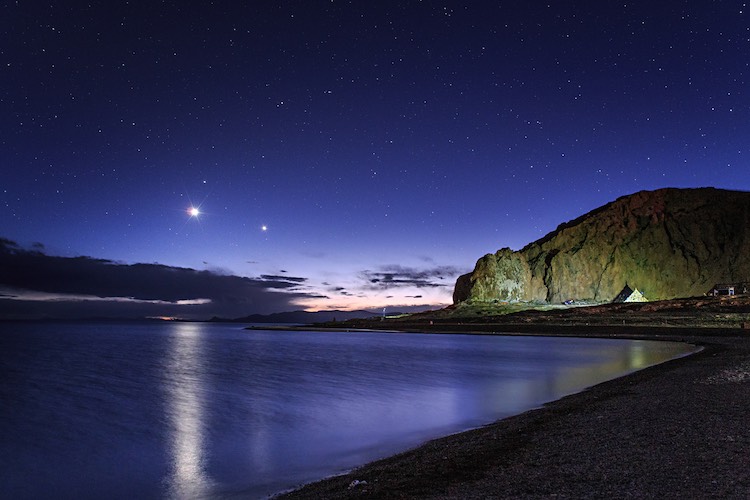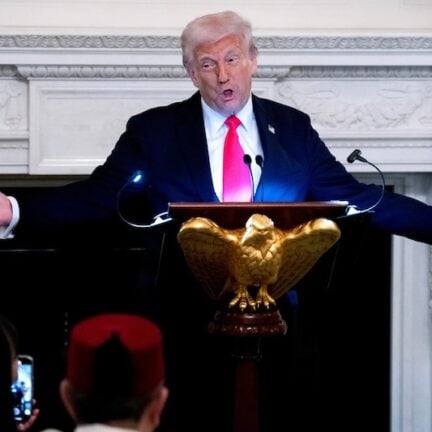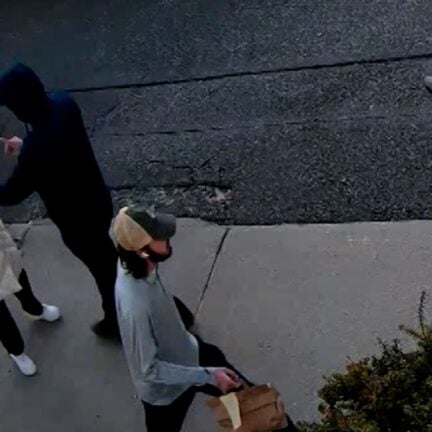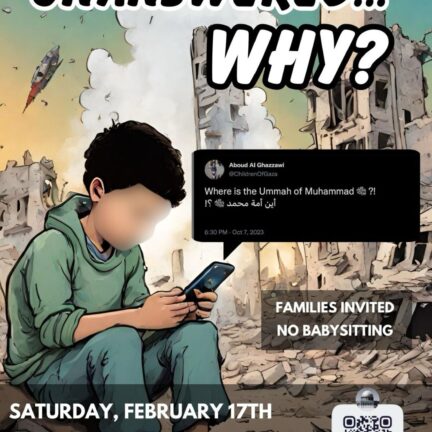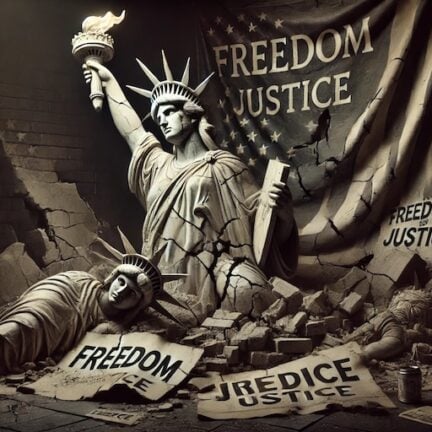Question:
My question is related to the Fajr prayer, which is known for its timing with the call to prayer in all countries, which is with the darkness of the night, i.e., before dawn.
My question is when is the Fajr prayer correct, is it with the call to prayer or with the break of the true dawn (buloogh alfajr)?
Is abstaining (Imsak) from food and drink with the call to prayer, or with reaching the true dawn?
Allah (swt) shows when we should refrain from eating and drinking and approaching women, according to His (swt) saying:
[حَتَّى يَتَبَيَّنَ لَكُمُ الْخَيْطُ الأَبْيَضُ مِنَ الْخَيْطِ الأَسْوَدِ مِنَ الْفَجْرِ]
“And eat and drink until the white thread of dawn becomes distinct to you from the black thread [of night]” [Al-Baqara: 187].
That is, until the appearance of the true dawn, which is the whiteness at the horizon in the form of a horizontal thread, which differentiates between night and day. Before the appearance of this whiteness in the form of a horizontal line, whiteness will appear in the form of a vertical line at the horizon, which is what is called the false dawn. Food, drink, and approaching women do not end with this false dawn, but by the rise of the true dawn that we have shown.
On the authority of Uday bin Hatim, he said: When this verse was revealed:
[وَكُلُوا وَاشْرَبُوا حَتَّى يَتَبَيَّنَ لَكُمُ الْخَيْطُ الأَبْيَضُ مِنَ الْخَيْطِ الأَسْوَدِ مِنَ الْفَجْرِ]
“And eat and drink until the white thread of dawn becomes distinct to you from the black thread [of night]” [Al-Baqara: 187].
I took two ropes, one black and the other white, and placed them under my pillow He said: I began to look at them, and when it became clear to me the white from the black, I refrained, and in the morning, I went to the Messenger of Allah (saw), and mentioned what I had done. He (saw) replied:
»إن وسادك إذن لعريض إنما ذلك بياض النهار من سواد الليل«
“Your pillow is so broad and lengthy; that is the whiteness of day from the blackness of night”
This is what was mentioned in the book “Tafsir Surat Al-Baqarah” by Sheikh Ata Abu Al-Rashtah. Please clarify, and may Allah bless you.
Answer:
Wa Alaikum Assalam Wa Rahmatullah Wa Barakatuh:
My brother, the adhaan for dawn is at the true dawn, that is, when the true dawn comes, the muezzin calls the call to prayer for the morning prayer, and this is the time for abstaining from eating and drinking. This is explained in the jurisprudence (fiqh) books.
It is mentioned in the book “Ahkam As-Salah” by Ali Raghib that was published by the party – Chapter on “Prayer Times”:
[Prayer times (page: 34 (Arabic version)- “Prayer Times”:The time of the morning is when the second dawn comes, which is the true dawn with which food and drink are forbidden for the fasting person, and the last of it is when it becomes clear, that is, when it is bright, because it was narrated that Jibril, peace be upon him, prayed the morning when dawn broke, and he prayed the next day when it became bright. Then the time for choice passes and the time for permission remains until sunrise. All times are shown in what Ahmad, Al-Nasa’i and Al-Tirmidhi narrated on this subject. It is the following:
On the authority of Jabir bin Abdullah: “The Prophet (saw) was approached by Jibril, peace be upon him, who said to him: Get up and pray it.
Then he approached him at dawn and said: Get up and pray it, so he (saw) prayed the dawn when the dawn had broken, or he said the dawn had brightened. Then he came the next morning.
Then he came to him at dawn when it was very bright and said: Get up and pray it, so he (saw) prayed dawn. Then he said: It is (its time) is between these two times”
The prayer at the beginning of the time is obligatory in an expanded manner, meaning that the person has the right to perform it in any part of the time (allocated), i.e., he has the choice to perform it from the beginning of the time to the end.] End and the meaning of (when the dawn broke) means the true dawn.
– It is stated in the Kuwaiti Encyclopedia of Fiqh, Part 28, p. 325:
[There is no disagreement among the jurists that the beginning of the time for the Fajr prayer is the appearance of the second dawn, i.e., the true dawn, and its last time until sunrise, because He (saw) said: «إنّ للصّلاة أوّلاً وآخراً، وإنّ أوّل وقت الفجر حين يطلع الفجر، وإنّ آخر وقتها حين تطلع الشّمس»“Indeed for (the time of) Salat (there is a) beginning and an end. The beginning of the time for Fajr is when Fajr begins, and its end is when the sun rises.”] End– It was also stated in the Kuwaiti Encyclopaedia of Fiqh, Part 8, p. 206:
[There is no disagreement among the jurists that the beginning of the morning time is the appearance of the true dawn, and it is called the second dawn. It is called true, because it is between the face of the morning and its clarity, its sign is whiteness that spreads across the horizon in width. As for the false dawn, and it is called the first dawn, there is no ruling attached to it, and it does not enter into the morning time. Its sign is whiteness, appearing vertically, rising in the middle of the sky, and then fading away after that.From the above, it is known that the majority of jurists are of the opinion that the last time for the morning prayer is sunrise. This is because it was narrated on the authority of Abu Hurairah, may Allah be pleased with him, on the authority of the Messenger of Allah (saw) that he said: «إنّ للصّلاة أوّلاً وآخراً، وإنّ أوّل وقت الفجر حين يطلع الفجرُ، وآخره حين تطلعُ الشّمسُ» “Indeed for (the time of) Salat (there is a) beginning and an end. The beginning of the time for Fajr is when Fajr begins, and its end is when the sun rises.”] End
Therefore, there is no difference between the true dawn and the dawn call to prayer, as they are one time. Allah Knows Best and is Most Wise.
Your Brother,
Ata Bin Khalil Abu Al-Rashtah
16 Sha’ban 1444 AH
8/3/2023 CE

